News and agenda
17 December 2024
New instrument unveils how humans grasp slippery objects

For the first time, scientists at TU Delft have uncovered how the human grip adapts to sudden changes in friction and load, using a novel device that alters friction on demand with ultrasonic vibrations. This deeper understanding of the neurological processes behind grip control could pave the way for innovative rehabilitation tools for stroke survivors and enhance the development of tactile robotics.
04 November 2024
Merging like a human: TU Delft develops new model to help self-driving cars drive socially
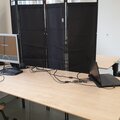
Scientists at TU Delft have developed a new model that better describes human behaviour when merging into motorway traffic. Current models often assume that drivers are constantly trying to optimise their behaviour to reach their destination as quickly and safely as possible, but this is not always the case, says postdoctoral researcher Olger Siebinga.
16 September 2024
Causing near collisions with cyclists to improve traffic models
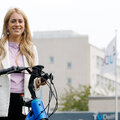
It’s surprising, but in the Netherlands – a nation of cyclists – there’s very little data on how cyclists respond to each other in traffic. Yet this data is essential for creating more realistic traffic models, which in turn are key to designing better cycling infrastructure across the Netherlands. Anna Marbus, a master’s student in robotics, wants to change that by causing near collisions with cyclists.
09 September 2024
2024 IEEE Transactions on Automation Science and Engineering Best Paper Award
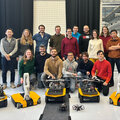
We are thrilled to announce that our paper "Group-based Distributed Auction Algorithms for Multi-Robot Task Assignment", authored by Xiaoshan Bai, Andres Fielbaum, Maximilian Kronmüller, Luzia Knoedler, and Javier Alonso-Mora, has received the 2024 IEEE Transactions on Automation Science and Engineering Best Paper Award!
05 September 2024
ERC Starting Grant to redesigning the intelligence of soft robots

Cosimo Della Santina has received an ERC Starting Grant to advance the intelligence of soft robots. His research will focus on having robots interacting with their environment via multiple complex large-area contacts, similar to how an elephant wraps its trunk around a branch.
03 September 2024
New consortium develops advanced AI for surveillance robots
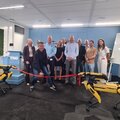
TU Delft, University of Amsterdam, TNO and the Royal Netherlands Marechaussee are joining forces to develop artificial intelligence (AI) for surveillance robots. The OpenBots consortium, officially launched on 4 September, focuses on creating intelligent systems that can support security staff in their daily tasks.
19 July 2024
David Abbink in RTL Nieuws
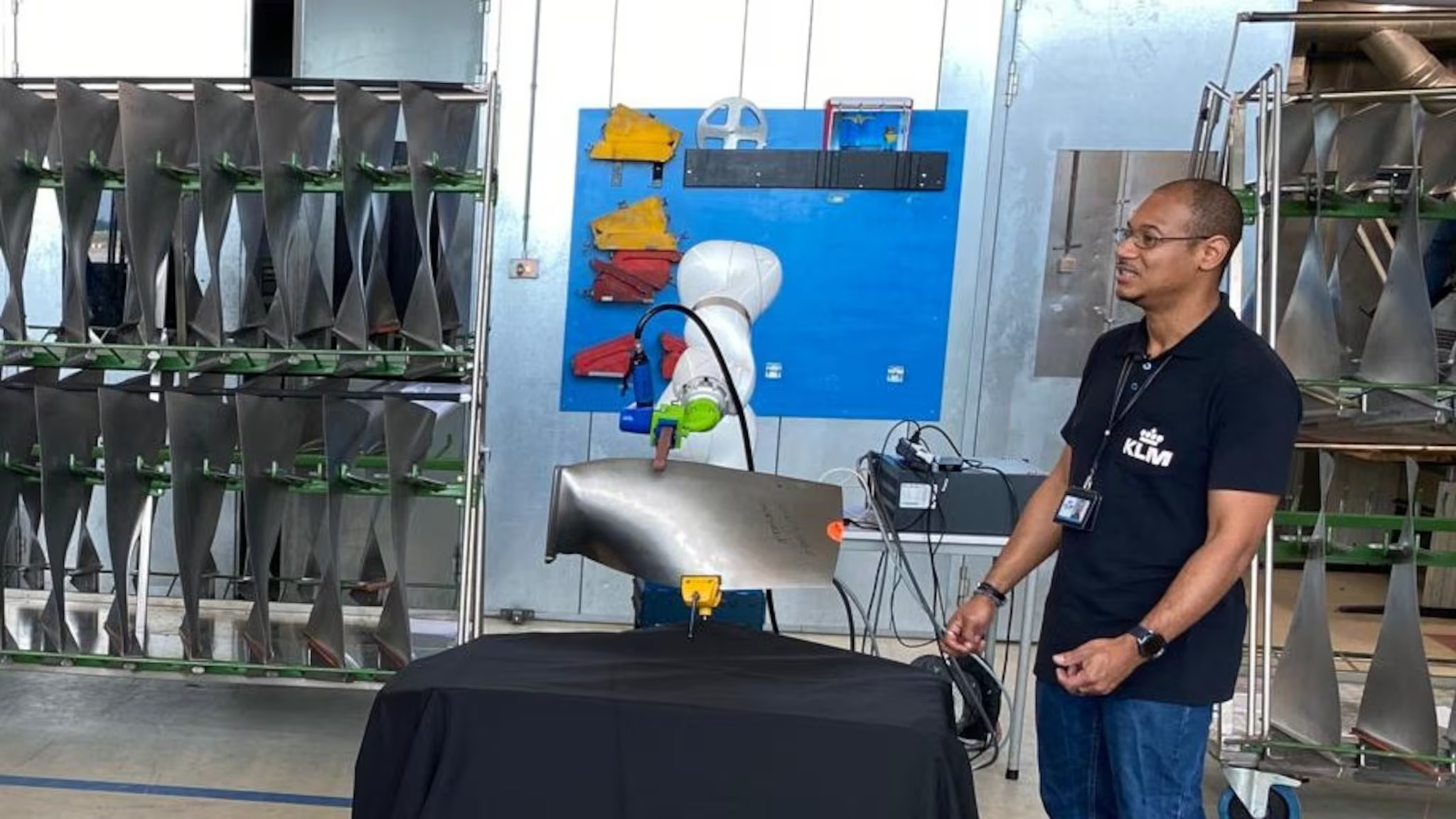
Rise of assistance robots at KLM and in healthcare: 'In five years, this will be very normal'
27 June 2024
Students present improvements to manure-cleaning robot

A robot that cleans cowsheds. 95 Master Robotics students have been working on this project for the past few weeks. On 13 June, they presented their robots to lecturers and client Lely, manufacturer of automated systems for dairy farmers. The students developed the control software for the robot. It had to avoid cows and other obstacles and navigate itself to places where there is manure.
21 June 2024
David Abbink about Stevin Prize in NOS News

For his research with high societal impact, David Abbink receives the most prestigious Dutch prizes in science.
21 June 2024
David Abbink receives Stevin Prize

David Abbink ontvangt dit jaar de NWO Stevinpremie. De Stevinpremie en de Spinozapremie zijn de hoogste Nederlandse onderscheidingen in de wetenschap. Ze worden jaarlijks uitgereikt aan vier mensen in totaal ‘voor hun uitmuntende, baanbrekende en inspirerende werk’, aldus NWO, die dit nieuws vandaag bekend maakt. Abbink ontvangt 1,5 miljoen euro te besteden aan wetenschappelijk onderzoek en kennisbenutting. Hij ontvangt de Stevinpremie met name voor de maatschappelijke impact van zijn onderzoek.